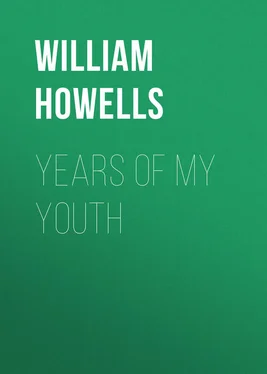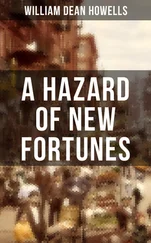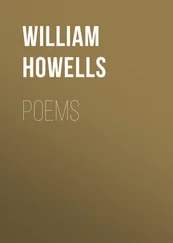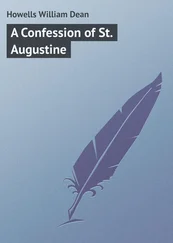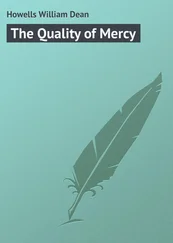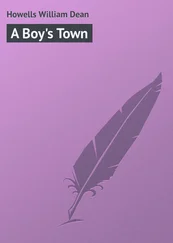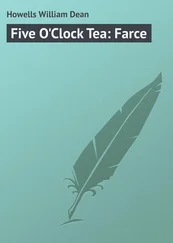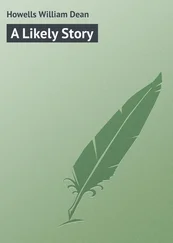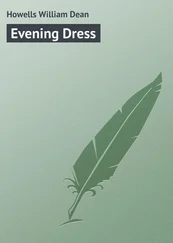William Howells - Years of My Youth
Здесь есть возможность читать онлайн «William Howells - Years of My Youth» — ознакомительный отрывок электронной книги совершенно бесплатно, а после прочтения отрывка купить полную версию. В некоторых случаях можно слушать аудио, скачать через торрент в формате fb2 и присутствует краткое содержание. Жанр: foreign_prose, на английском языке. Описание произведения, (предисловие) а так же отзывы посетителей доступны на портале библиотеки ЛибКат.
- Название:Years of My Youth
- Автор:
- Жанр:
- Год:неизвестен
- ISBN:нет данных
- Рейтинг книги:5 / 5. Голосов: 1
-
Избранное:Добавить в избранное
- Отзывы:
-
Ваша оценка:
- 100
- 1
- 2
- 3
- 4
- 5
Years of My Youth: краткое содержание, описание и аннотация
Предлагаем к чтению аннотацию, описание, краткое содержание или предисловие (зависит от того, что написал сам автор книги «Years of My Youth»). Если вы не нашли необходимую информацию о книге — напишите в комментариях, мы постараемся отыскать её.
Years of My Youth — читать онлайн ознакомительный отрывок
Ниже представлен текст книги, разбитый по страницам. Система сохранения места последней прочитанной страницы, позволяет с удобством читать онлайн бесплатно книгу «Years of My Youth», без необходимости каждый раз заново искать на чём Вы остановились. Поставьте закладку, и сможете в любой момент перейти на страницу, на которой закончили чтение.
Интервал:
Закладка:
I had been the prey of that obsession which every one has experienced when the place where one is disorients itself and west is east and north is south. Sometimes this happens by a sudden trick within the brain, but I lived four years in Columbus and as many in Venice without once being right as to the points of the compass in my nerves, though my wits were perfectly convinced. Once I was months in a place where I suffered from this obsession, when I found myself returning after a journey with the north and south quite where they should be; and, “Now,” I exulted, “I will hold them to their duty.” I kept my eyes firmly fixed upon the station, as the train approached; then, without my lifting my gaze, the north was back again in the place of the south, and the vain struggle was over. Only the other day I got out of a car going north in Fourth Avenue, and then saw it going on south; and it was only by noting which way the house numbers increased that I could right myself.
I suppose my father promised a reform that should appease my unreason, but whether he could deny himself those chances of general information I am not so sure; we may have both expected too much of each other. As I was already imaginably interested in things of the mind beyond my years, he often joined me in my perusal of the drifting landscape and made me look at this or that feature of it, but he afterward reported at home that he never could get anything from me but a brief “Yes, indeed,” in response. That amused him, yet I do not think I should have disappointed him so much if I could have told him I was losing nothing, but that our point of view was different. The soul of a child is a secret to itself, and in its observance of life there is no foretelling what it shall loose or what it shall hold. I do not believe that anything which was of use to me was lost upon me, but what I chiefly remember now is my pleasure in the log cabins in the woods on the shores, with the blue smoke curling on the morning or the evening air from their chimneys. My heart was taken with a yearning for the wilderness such as the coast-born boy feels for the sea; in the older West the woods called to us with a lure which it would have been rapture to obey; the inappeasable passion for their solitude drove the pioneer into the forest, and it was still in the air we breathed. But my lips were sealed, for the generations cannot utter themselves to each other till the strongest need of utterance is past.
I used to sit a good deal on the hurricane-deck or in the pilot-house, where there was often good talk among the pilots or the boat’s officers, and where once I heard with fascination the old Scotch pilot, Tom Lindsay, telling of his own boyhood in the moors, and of the sheep lost in the drifting snows; that also had the charm of the wilderness; but I did not feel the sadness of his saying once, as we drifted past a row of crimson-headed whisky barrels on a wharf-boat, “Many a one of those old Red Eyes I’ve helped to empty,” or imagine the far and deep reach of the words which remained with me. Somewhere in the officers’ quarters I found a sea novel, which I read partly through, but I have not finished The Cruise of the Midge , to this day, though I believe that as sea novels go it merits reading. When I was not listening to the talk in the pilot-house, or looking at the hills drifting by, I was watching the white-jacketed black cabin-boys setting the tables for dinner in the long saloon of the boat. It was built, after a fashion which still holds in the Western boats, with a gradual lift of the stem and stern and a dip midway which somehow enhanced the charm of the perspective even to the eyes of a hungry boy. Dinner was at twelve, and the tables began to be set between ten and eleven, with a rhythmical movement of the negroes as they added each detail of plates and cups and knives and glasses, and placed the set dishes of quivering jelly at discrete intervals under the crystals of the chandeliers softly tinkling with the pulse of the engines. At last some more exalted order of waiters appeared with covered platters and spirit-lamps burning under them, and set them down before the places of the captain and his officers. Then the bell was sounded for the passengers; the waiters leaned forward between these when they were seated; at a signal from their chief they lifted the covers of the platters and vanished in a shining procession up the saloon, while each passenger fell upon the dishes nearest himself.
About the time I had become completely reconciled to the conditions of the voyage, which the unrivaled speed of the New England No. 2 shortened to a three-days’ run up the river, I woke one morning to find her lying at the Pittsburg landing, and when I had called my father to come and share my wonder at a stretch of boats as long as that at Cincinnati, and been mimicked by a cabin-boy for my unsophisticated amazement, nothing remained for me but to visit the houses of the aunts and uncles abounding in cousins. Of the homeward voyage nothing whatever is left in my memory; but I know we came back on the New England No. 2 , though we must have left the boat and taken it again on a second trip at Wheeling, after a week spent with my mother’s people at Martin’s Ferry. My father wished me to see the glass-foundries and rolling-mills which interested him so much more than me; he could not get enough of those lurid industries which I was chiefly concerned in saving myself from. I feigned an interest in the processes out of regard for him, but Heaven knows I cared nothing for the drawing of wire or the making of nails, and only a very little for the blowing of the red, vitreous bubbles from the mouths of long steel pipes. With weariness I escaped from these wonders, but with no such misery as I eluded the affection of the poor misshapen, half witted boy who took a fancy to me at the house of some old friends of my father where we had supper after the long day. With uncouth noises of welcome, and with arms and legs flying controllessly about, he followed me through a day that seemed endless. His family of kindly English folk, from the life-long habit of him, seemed unaware of anything strange, and I could not for shame and for fear of my father’s reproach betray my suffering. The evening began unduly to fall, thick with the blackness of the coal smoke poured from the chimneys of those abhorred foundries, and there was a fatal moment when my father’s friends urged him to stay the night and I thought he would consent. The dreams of childhood are oftenest evil, but mine holds record of few such nightmares as this.
VII
After my father sold his paper and was casting about for some other means of livelihood, there were occasional shadows cast by his anxieties in the bright air of my childhood. Again I doubt if any boy ever lived a gladder time than I lived in Hamilton, Butler County, Ohio: words that I write still when I try a new pen, because I learned to write them first, and love them yet. When we went to live in Dayton, where my father managed to make a sort of progressive purchase of a newspaper which he never quite paid for, our skies changed. It was after an interval of experiment in one sort and another, which amused his hopeful ingenuity, but ended in nothing, that he entered upon this long failure. The Dayton Transcript when he began with it was a tri-weekly, but he made it a daily, and this mistake infected the whole enterprise. It made harder work for us all than we had known before; and the printing-office, which had been my delight, became my oppression after the brief moment of public schooling which I somehow knew. But before the change from tri-weekly to daily in our paper, I had the unstinted advantage of a school of morals as it then appeared among us.
The self-sacrificing company of players who suffered for the drama through this first summer of our life in Dayton paid my father for their printing in promises which he willingly took at their face value, and in tickets which were promptly honored at the door. As nearly as I can make out, I was thus enabled to go every night to the theater, in a passion for it which remains with me ardent still. I saw such plays of Shakespeare as “Macbeth” and “Othello,” then the stage favorites, and “Richard III.” and evermore “Richard III.” I saw such other now quite forgotten favorites as Kotzebue’s “Stranger” and Sheridan Knowles’s “Wife,” and such moving actions of unknown origin as “Barbarossa” and “The Miser of Marseilles,” with many screaming farces such as helped fill every evening full with at least three plays. There was also at that time a native drama almost as acceptable to our public everywhere as “Uncle Tom’s Cabin” afterward became. It seemed as if our public would never tire of “A Glance at New York,” with its horribly vulgar stage conceptions of local character, Mose the fireman and Lize his girl, and Sikesy and their other companions, which drift up before me now like wraiths from the Pit, and its events of street-fighting and I dare say heroic rescues from burning buildings by the volunteer fire companies of the day. When it appeared that the public might tire of the play, the lively fancy of the theater supplied a fresh attraction in it, and the character of Little Mose was added. How this must have been played by what awful young women eager to shine at any cost in their art, I shudder to think, and it is with “sick and scornful looks averse” that I turn from the remembrance of my own ambition to shine in that drama. My father instantly quenched the histrionic spark in me with loathing; but I cannot say whether this was before or after the failure of a dramatic attempt of his own which I witnessed, much mystified by the sense of some occult relation to it. Certainly I did not know that the melodrama which sacrificed his native to his adoptive patriotism in the action, and brought off the Americans victors over the British in a sea-fight, was his work; and probably it was the adaptation of some tale then much read. Very likely he trusted, in writing it, to the chance which he always expected to favor the amateur in taking up a musical instrument strange to him. He may even have dreamed of fortune from it; but after one performance of it the management seems to have gone back to such old public favorites as Shakespeare and Sheridan Knowles. Nothing was said of it in the family; I think some of the newspapers were not so silent; but I am not sure of this.
Читать дальшеИнтервал:
Закладка:
Похожие книги на «Years of My Youth»
Представляем Вашему вниманию похожие книги на «Years of My Youth» списком для выбора. Мы отобрали схожую по названию и смыслу литературу в надежде предоставить читателям больше вариантов отыскать новые, интересные, ещё непрочитанные произведения.
Обсуждение, отзывы о книге «Years of My Youth» и просто собственные мнения читателей. Оставьте ваши комментарии, напишите, что Вы думаете о произведении, его смысле или главных героях. Укажите что конкретно понравилось, а что нет, и почему Вы так считаете.
